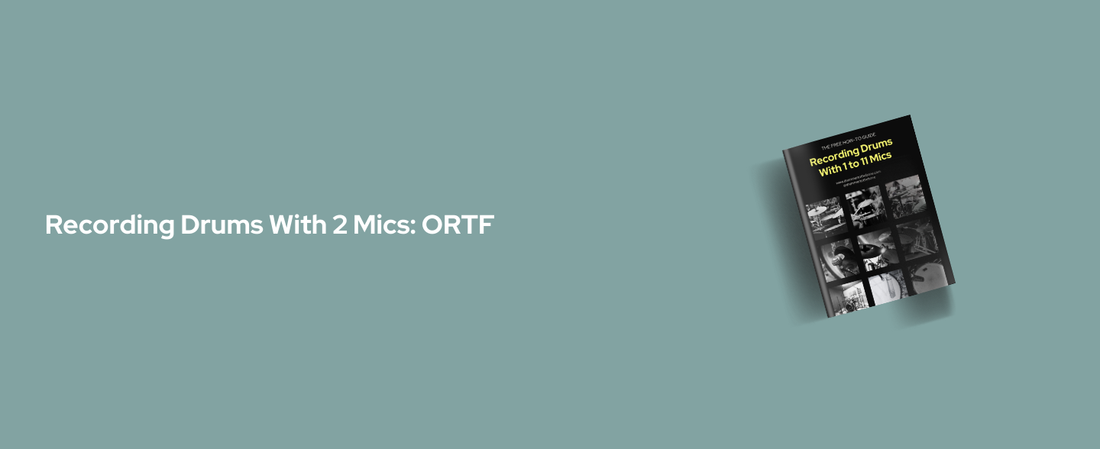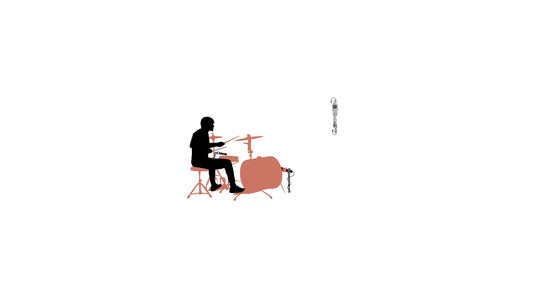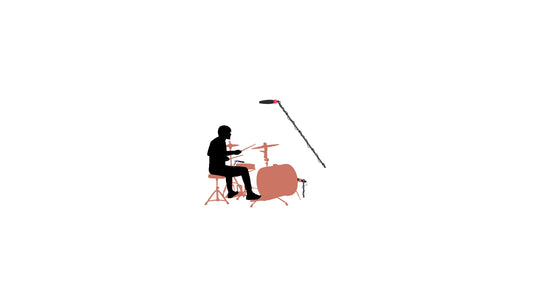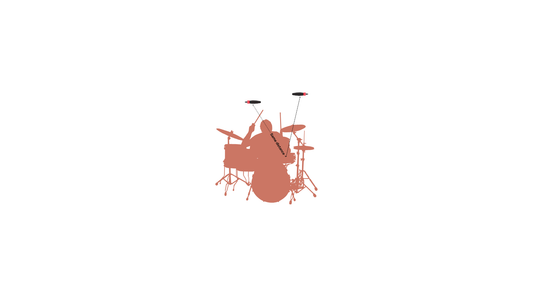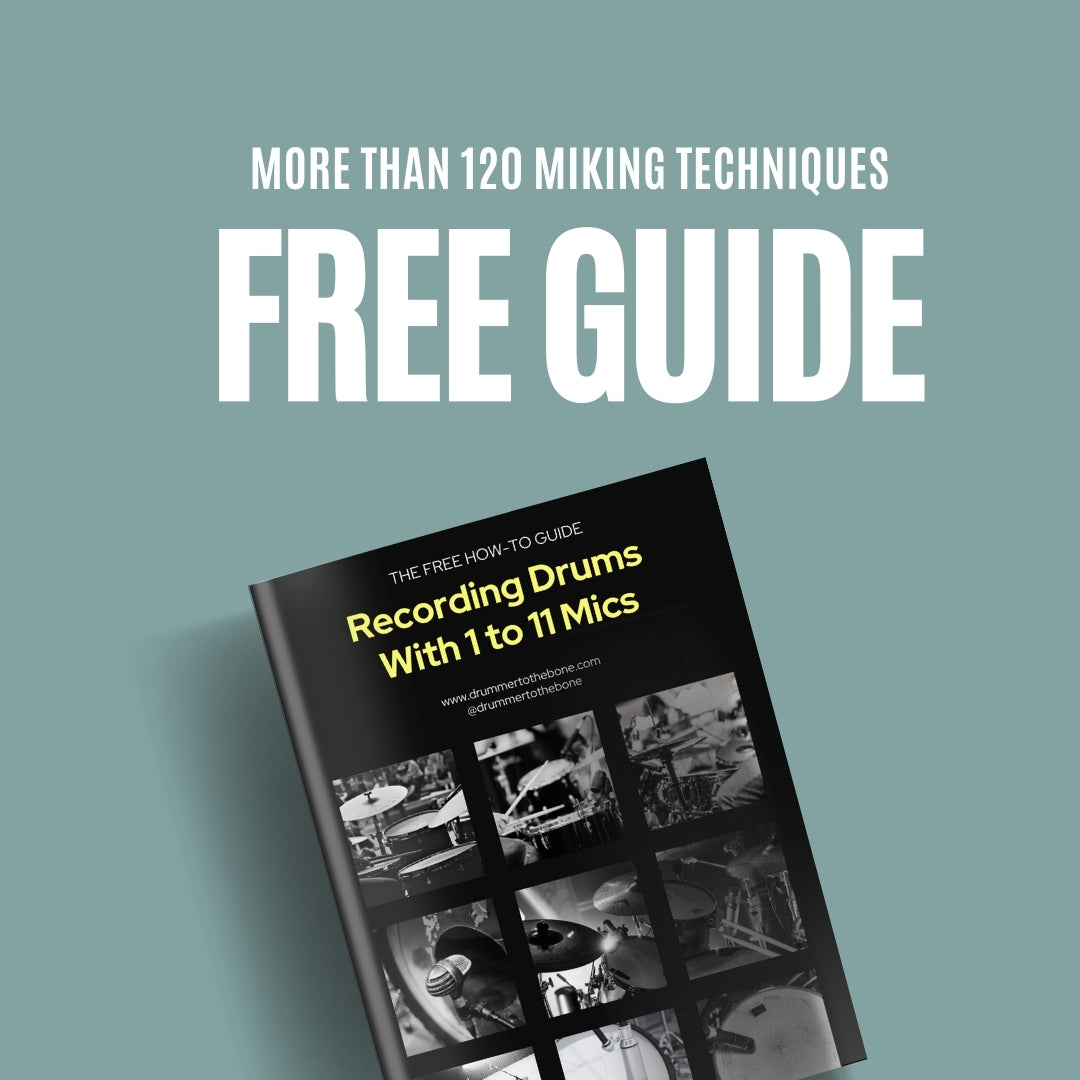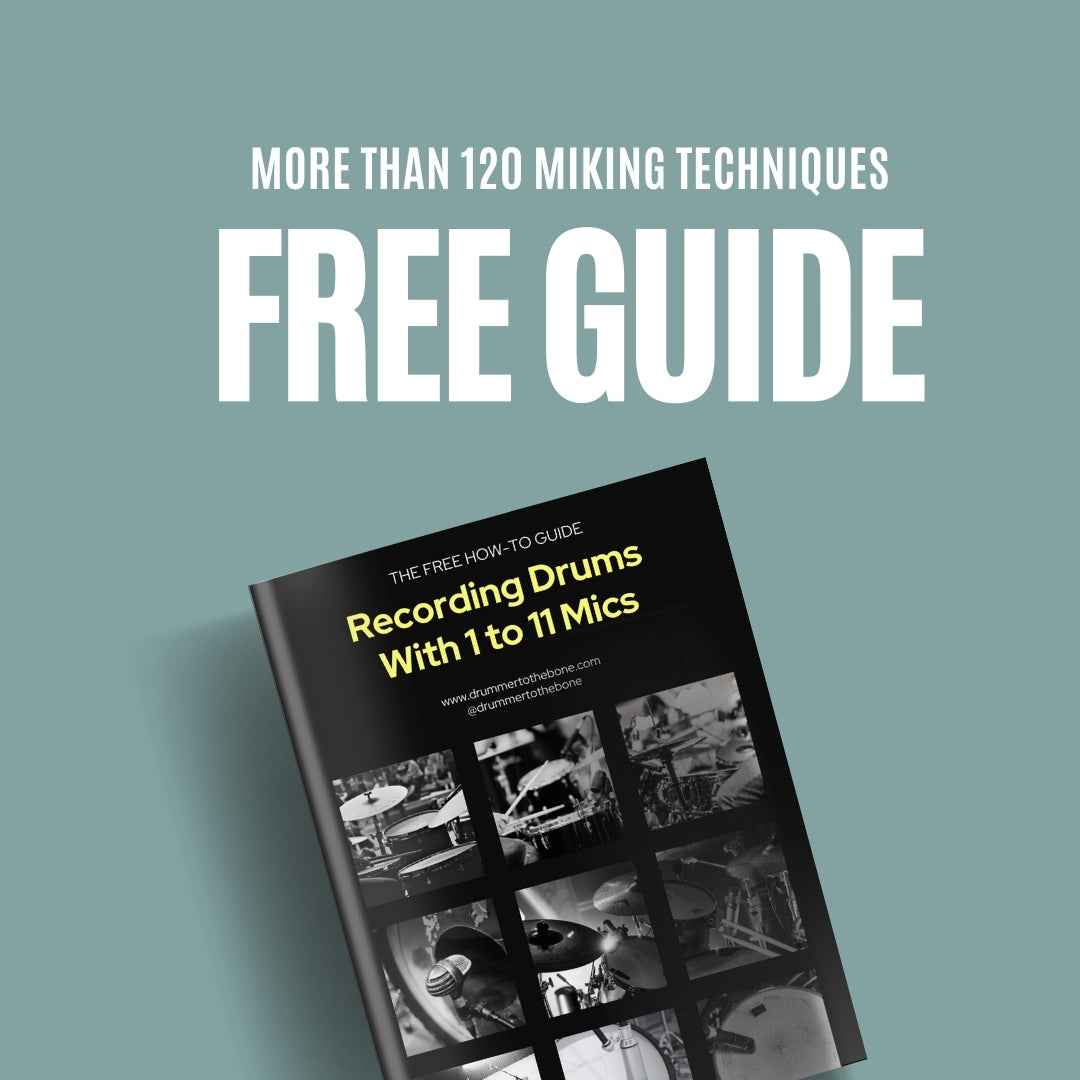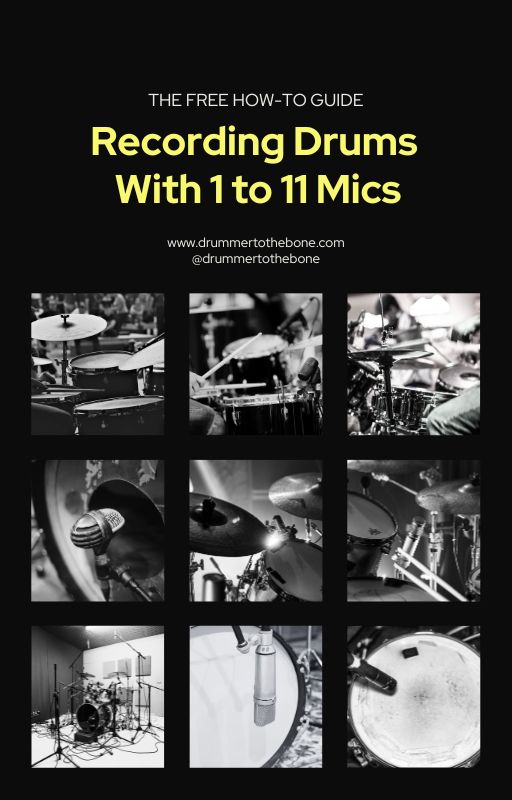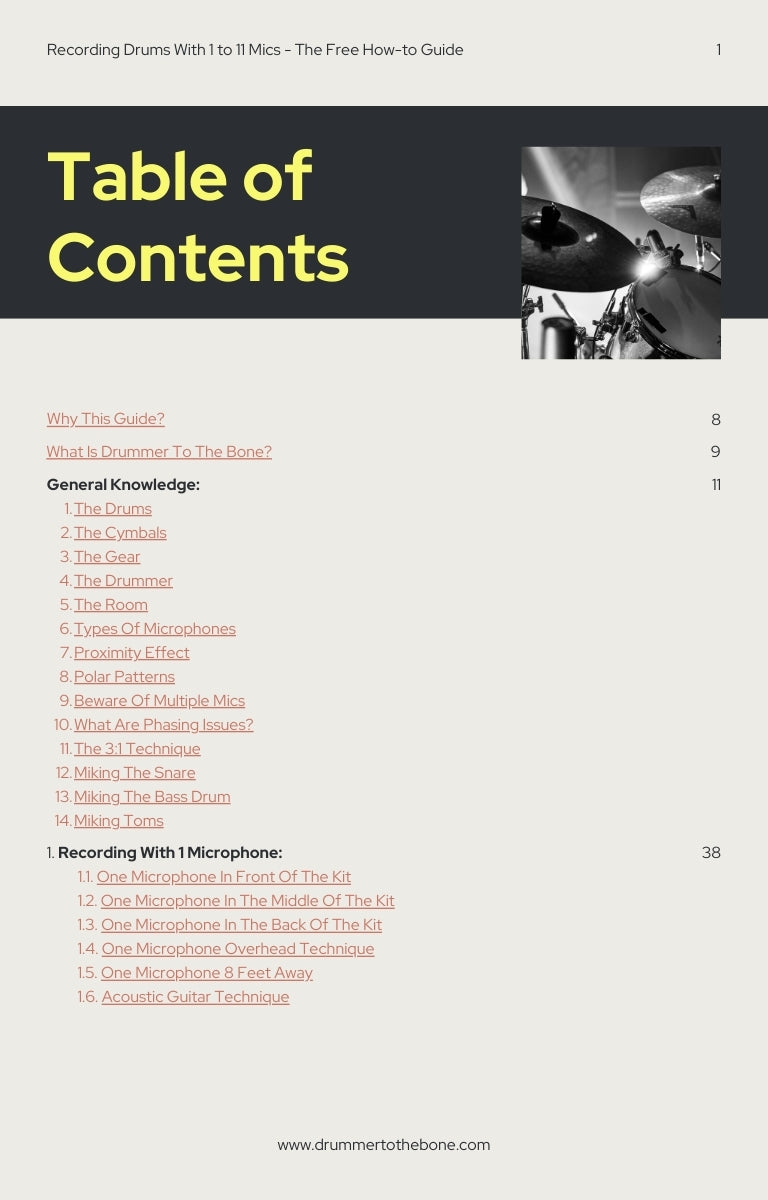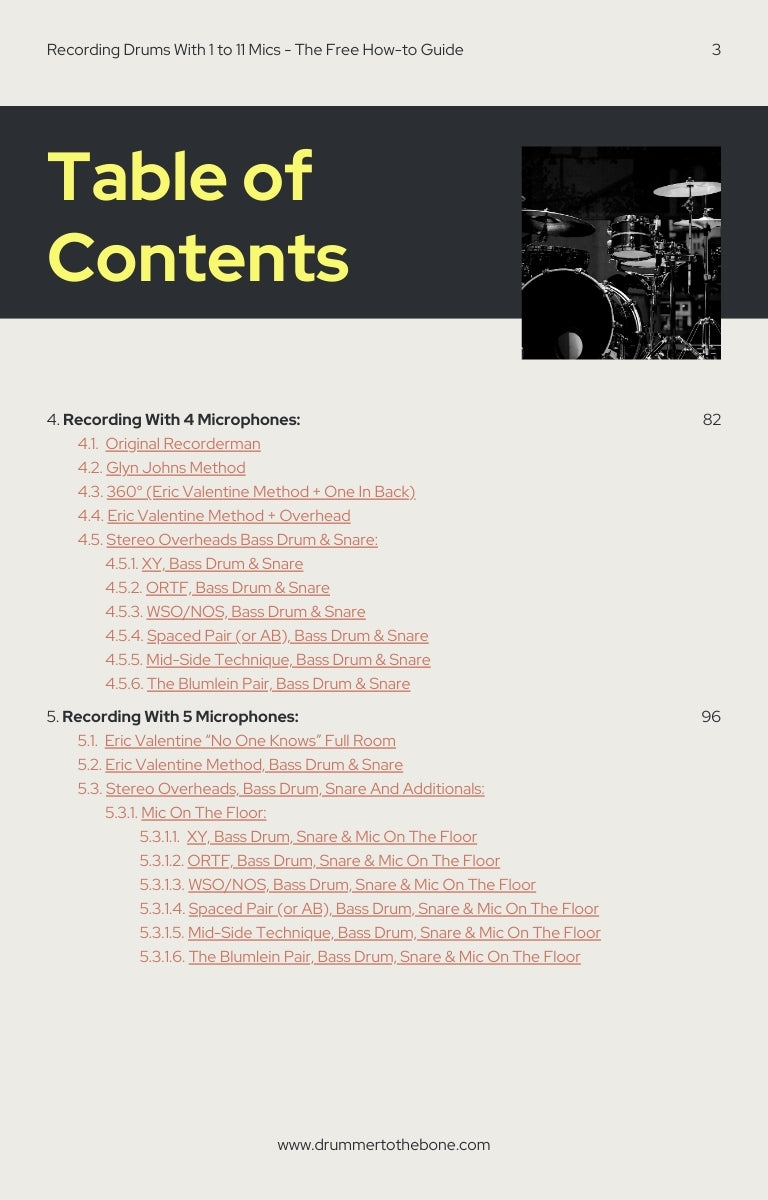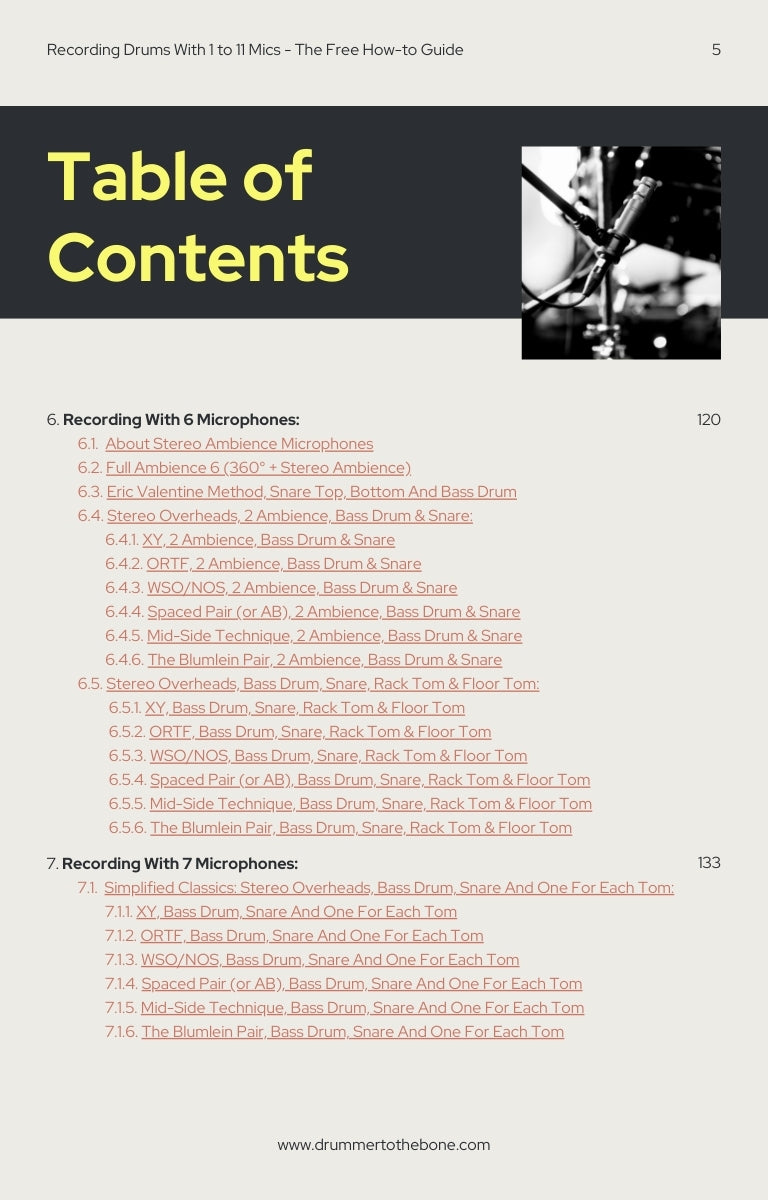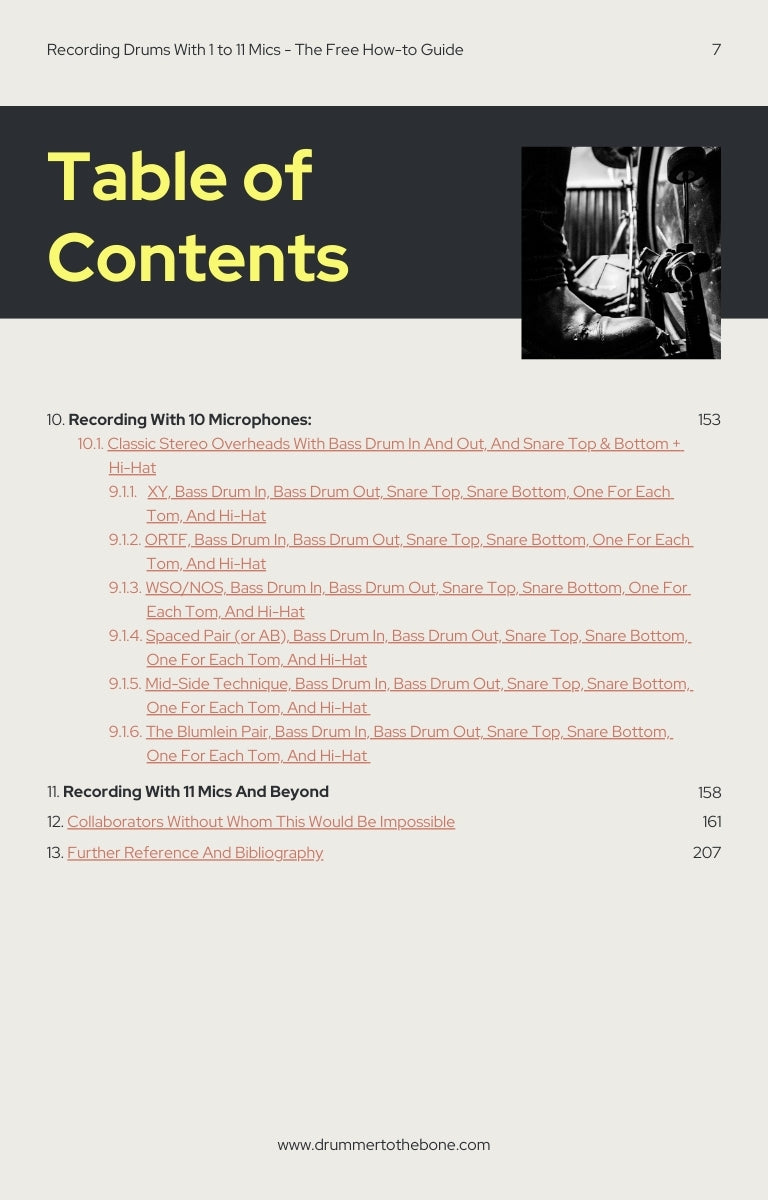The Office de Radiodiffusion Télévision Français technique, developed at Radio France. The French Broadcasting Company developed this improvement (according to them, at least) of the X-Y method. Supposedly, they were looking to emulate the distance between our ears. They figured that the result might sound like what we hear naturally.
This technique is pretty much like the X-Y, in the sense that it uses 2 identical microphones, but at an angle of 110° and spaced apart at around 6.7″ (17cm)—which is approximately the distance between your ears.

Pros of this approach:
- Is a good way to get a wider image than X-Y, but without as much variation in ambience from left to right. You can get a more direct cymbal and overhead sound without losing some semblance of the stereo image of the kit.
- As with the X-Y (although a little less), it keeps very good mono compatibility.
- The stereo image you can capture using is well suited to headphone playback (because you’re using the same principle: one for each ear).
Cons:
- You have a slight chance of phase issues if you don’t center the pair correctly. The further away you go from X-Y, where the mics are together, the more careful you have to be with the centering.
- Although you get a wider stereo sound than X-Y, you still have a sound that sits on the narrower side of the spectrum. I wouldn’t rely on this method if you’re looking for a wide sound, but it is a good option for added room ambience sound.

